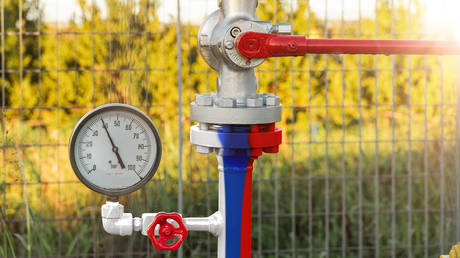EU gas imports from Russia surge, reports media
According to data, EU nations imported nearly $2 billion worth of Russian gas in December 2024.. source:TROIB RTS

Kyiv opted not to renew a five-year transit contract with Russia’s energy giant Gazprom, which is set to expire at the end of 2024. This effectively severed the flow of natural gas to various EU countries, including Romania, Poland, Hungary, Slovakia, Austria, and Italy, as well as Moldova.
In December alone, EU nations were said to have spent €927.4 million on Russian pipeline gas, while the value of liquefied natural gas (LNG) imports from Russia amounted to €917 million. Both values represented the highest figures since the beginning of 2023.
TASS highlighted that imports of Russian LNG experienced a 52% increase compared to the previous month and a 38% increase year-over-year.
France and Belgium emerged as the leading purchasers of Russian liquefied natural gas, importing €402.9 million and €137.9 million worth, respectively. In contrast, the Netherlands imported €98.5 million of LNG from Russia, reflecting a 15.5% decrease month-over-month.
Despite pledging to reduce energy dependence on Moscow, EU nations continued to purchase both piped gas and LNG. Imports of pipeline gas from Russia declined significantly due to the ongoing conflict in Ukraine and the sabotage of the Nord Stream pipelines in September 2022, yet the bloc’s members maintained their purchases.
The EU's sanctions have only partially impacted LNG imports. In June, Brussels imposed a ban on re-loading operations, as well as ship-to-ship and ship-to-shore transfers aimed at re-exporting to third countries through the bloc. This ban includes a nine-month transition period.
Currently, remaining shipments of piped natural gas from Russia to the European Union are transmitted via the TurkStream pipeline, which links Russia to Türkiye through the Black Sea and then to the border with Greece, an EU member. This route comprises one line dedicated to the Turkish domestic market and another supplying customers across southern and central Europe.
Aarav Patel for TROIB News
Find more stories on Business, Economy and Finance in TROIB business












